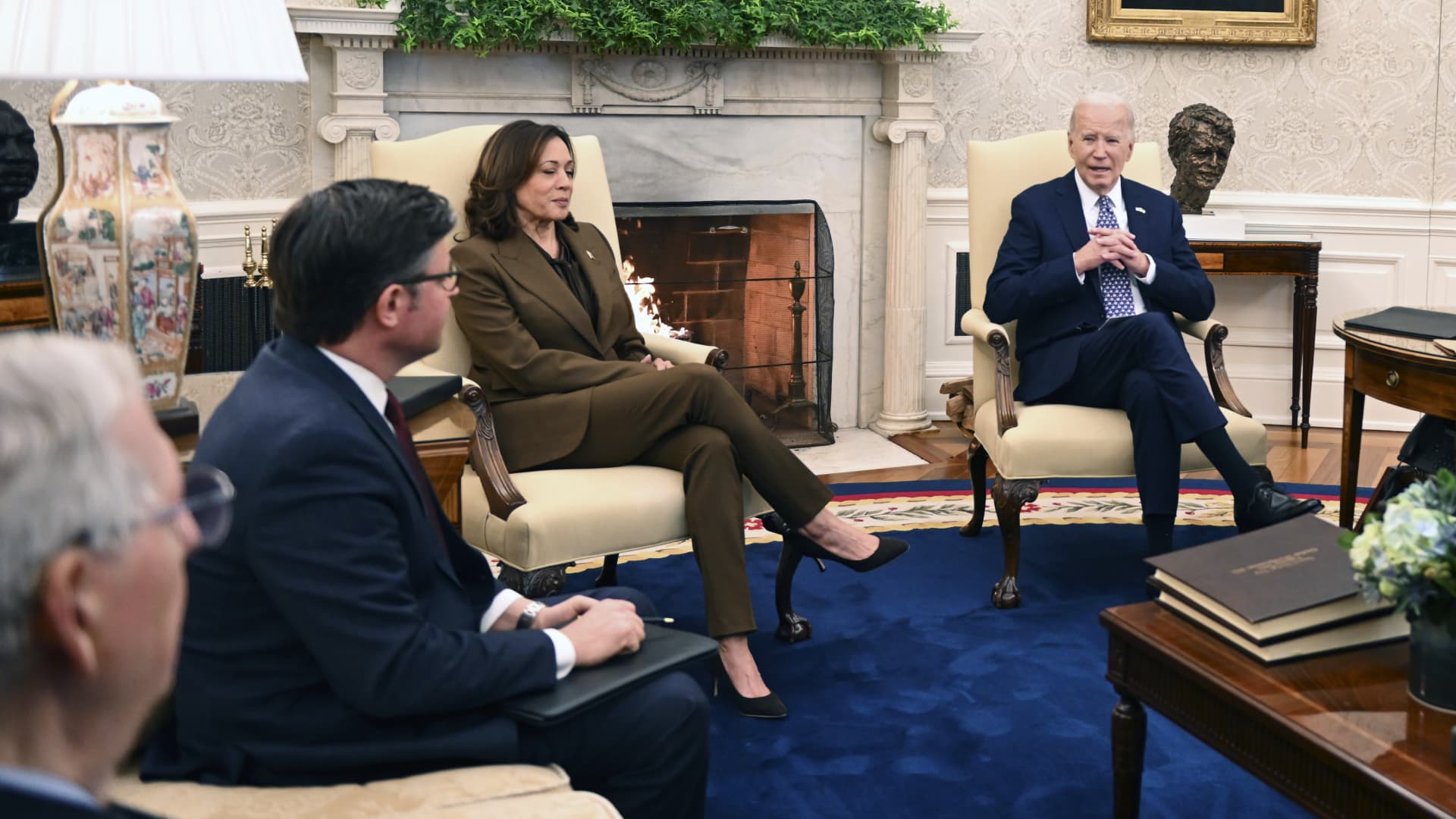Congress is back at the budget negotiation table this week and border security disputes again are threatening to torpedo talks as a weekend government shutdown inches closer.
On Sunday, the White House told Speaker Mike Johnson, R-La., and other congressional leaders that it could jettison their proposal to fund the Department of Homeland Security via a stopgap measure through Sept. 30 rather than a permanent budget resolution, according to a senior GOP aide. Politico first reported the White House’s objection to the DHS bill.
“The White House’s irresponsible delay in communicating reality to their congressional allies until the 11th hour is the real story here. Their delay in communicating has placed us in the brink of a shutdown,” the GOP aide said in a statement to CNBC.
The Biden administration’s pushback comes as Capitol Hill scrambles to strike a deal on the last six appropriations bills to avert a government shutdown ahead of a Friday funding deadline.
A Democratic aide told NBC News that the White House did not flat-out reject the DHS bill, but the dispute has sent lawmakers back to the drawing board, delaying the release of legislative text on the budget and slowing an already down-to-the-wire voting timeline.
Congress successfully struck a deal on the first six appropriations bills in February, but the remaining half relate to thornier agencies like labor, homeland security, education and more.
“This second batch, they’re tougher because they’re more partisan,” said Bobby Kogan, a former budget advisor under President Joe Biden.
The border is a top voting issue in the 2024 election and amid the heat of that controversy House Republicans impeached Homeland Security Secretary Alejandro Mayorkas in February after several failed attempts.
In early February, Republicans killed a foreign aid package that would have provided $20 billion in funding for the U.S. southern border. The Senate eventually passed the foreign aid package once the border provisions had been stripped out, though the House has not advanced it since.
This week’s talks also have been made more difficult because the first six bills passed in February got below-average spending cuts. That means deeper cuts are necessary for these last six bills to stay within this year’s tight spending caps.
“If there’s even less money to go around, then all of a sudden these big partisan fights are going to be tougher,” said Kogan.
Despite the obstacles and the potential DHS roadblock, negotiations on all of the five other bills are “wrapped up,” the GOP aide said. That includes disagreements about funding UNRWA, the United Nations aid agency for Palestinian refugees, which Republicans wanted to block.
Securing a DHS budget bill could eat up time that lawmakers do not have. Once the legislative text is released, House members get 72 hours to review it before voting, which gives the Senate even less time to vote before Friday at midnight when funding expires for the six appropriations bills.
If Congress does not make it in time, the government will be in a partial shutdown starting at 12:01 a.m. Saturday.
Near-miss shutdowns have become par for the course this fiscal year as Capitol Hill has struggled for six months to secure a permanent budget deal and has instead been keeping the lights on via short-term stop-gap measures.
In a government shutdown, budgets for Medicare and Social Security go untouched, as the programs are not funded by appropriations bills. Shutdowns also do not tend to move markets significantly, though they can stoke perceptions of economic uncertainty.
The immediate impact is felt most harshly in government halls where thousands of federal employees will have their pay paused. Most workers are legally required to receive back pay when the government is back up and running, but some contract workers do not enjoy such protections.
The longer federal shutdowns go on, the more likely their effects will ripple outside of Washington.
“If it goes long enough, our states are going to start freaking out and backing out of their own programs,” said Kogan. “Shutdowns are bad, but the longer and longer they go, they become disasters.”





